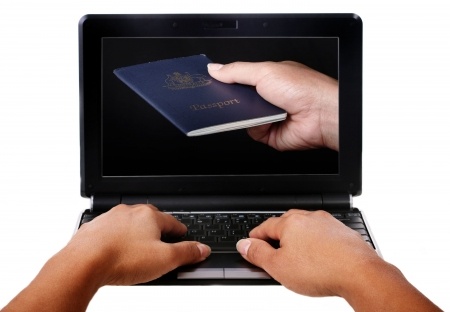The cyber world has risks and dangers just like the real world. It would not be safe for your kid to walk alone late at night to a high crime neighborhood asking strangers where to pay cash for an expensive video game system. What if your kid then gave your house key to a stranger who offered to help and asked them to drop it off sometime when no one was home? Teenagers need to know how to keep themselves safe, both on and off line. This means understanding the issues of privacy and security in the cyber world.
Privacy
Cyber privacy is about revealing or withholding information from others. It is the option of allowing others to have access to personal information. Privacy in the cyber world is more difficult for kids to appreciate than it is in the physical world. In the physical world, there are doors and windows and walls and clothing and silence and darkness that make it easier to identify and understand privacy. (The problems with even these concepts of privacy is beyond the scope of this column. Suffice to it to say that these areas of privacy also have their limitations.) Only the most technologically sophisticated kid (or parent) can truly appreciate how difficult it is to maintain privacy in the cyber world.
Personal privacy. To begin with, your kid will need to think carefully about what information to keep private. This usually includes some, but not all, elements of their cyber identity and their cyber footprint. (See previous column.) The criteria should include whether the information could be used to embarrass or cause them harm. Information that should typically treated as private includes personally identifying information (e.g., social security number, full name, passwords, etc.), geographic location (e.g., home address, neighborhood, GPS signal!) and numbers to money accounts (e.g., debit card, Paypal, etc.).
Other’s privacy. In the cyber world, your kid is not only responsible for their own privacy but also for maintaining the privacy entrusted to them by others. When someone reveals private information to your kid or gives them access to private online information your kid is obligated to keep that information private. Personal information about an individual or their accounts should only be shared with that person’s permission. (That also means that your kid should think carefully about who they share private information with.)
Security
Security is about protecting private information from people who may try to obtain it without your kid’s knowledge or consent. The first level of security deals with opportunistic thieves. These are individuals who make use of private information that has not been secured. Security for dealing with these kinds of thieves includes maintaining complex and frequently changed log in identifications and passwords. It also includes being aware of the ways in which information is available through public sources through the foot print your kid leaves in the cyber world. Marketers who send spam through mass emails would also be included in this level of cyber security.
The next level of security is necessary for dealing with professional thieves. This includes the use of hidden programs to gather information from your kid’s computer without their knowledge or to take control of the computer to use for other purposes. This would be represented by phishing emails, malicious bots, viruses and worms and zombie computers
. It would also include people who actively attempt to defeat your kids computer security programs (i.e., computer crackers).
By reviewing the concepts of privacy and security with your kid, you will better prepare them to move more safely in the cyber world. It will also help them recognize the various strategies professional thieves use to misuse your kid’s identity and resources. The next aspect of cyber citizenship is that of respect in the cyber community. This includes respect for the rights of others as well as respect for the law.
originally published on www.brentwoodhomepage.com

